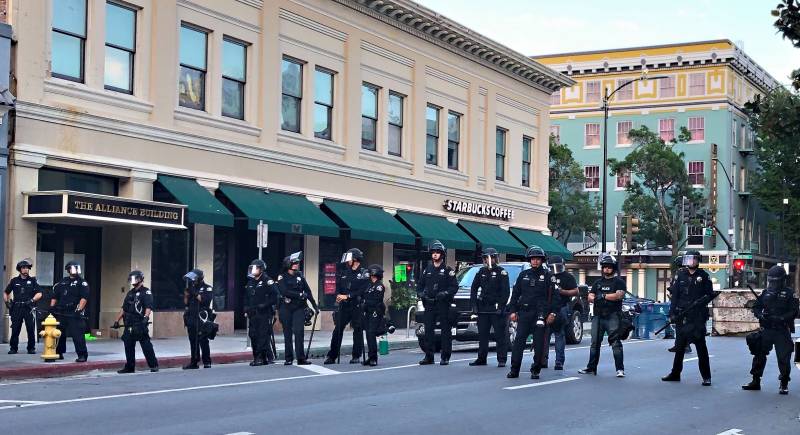After a couple of weeks to chew on San Jose Mayor Sam Liccardo’s nine-point proposal to reform the city’s police department, the verdict from many community activists is… meh.
Take the Rev. Jethroe Moore II, president of the San Jose/Silicon Valley NAACP, who described the plan as, “inadequate at best.”
“It falls short of the expectations and the desire of many, I would say, most of the community members,” he added. “We want change. We want substantial change.”
Liccardo’s proposal, which he released in late June amid ongoing protests against police brutality, included the following measures:
- Expand public transparency for arbitration over termination and disciplinary decisions
- Conduct Independent investigation of police misconduct
- Expand authority of the independent police auditor over “use of force” allegations
- Grant college scholarships to local youth who agree to join the San Jose Police Department following graduation
- Direct $100,000 for a community engagement process to reimagine how the city might rely more on civilian responses for a variety of non-criminal calls for service
- Ban the use of rubber bullets ban and conduct a full review of SJPD’s use-of-force policy
- Make police subject to direction of elected leadership
- Leverage data to improve recruiting, training and early intervention
- Audit police expenditures
The mayor’s office said some proposals will take years to properly formulate, even as the City Council begins addressing some items, such as an expansive rubber bullet ban, which it’ll consider in August.

